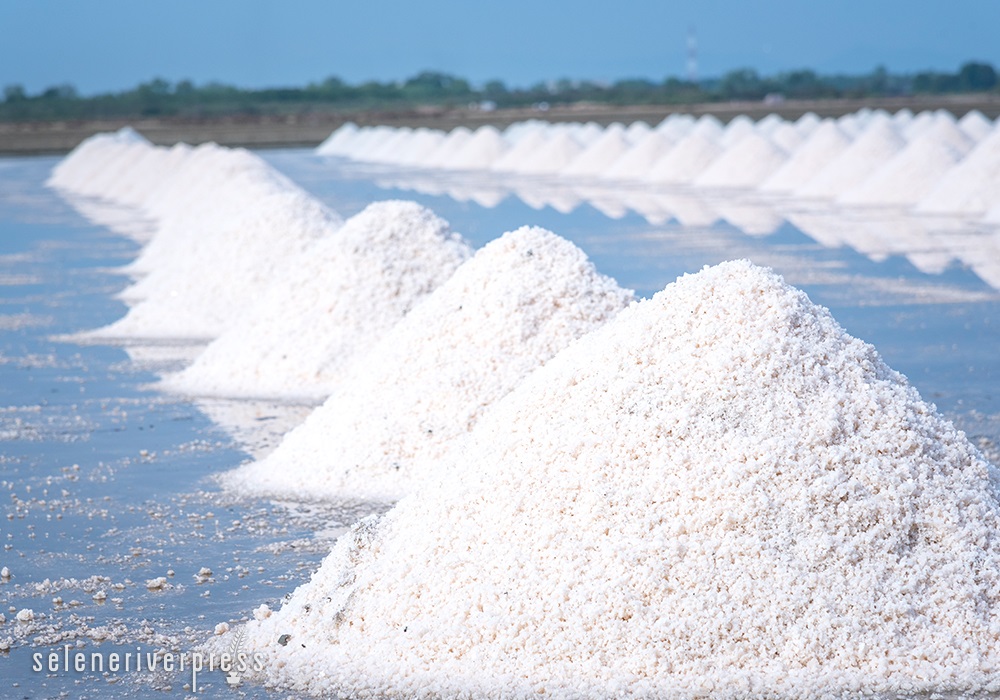“You need to add more salt into your diet.” Those are words we rarely hear. Yet much to my surprise that’s just what our clinical nutritionist recently told me. I was discussing some odd symptoms I’d been experiencing, and after asking me a series of questions, she explained that my sodium and potassium levels were out of balance. “Try adding more salt into your diet for a couple of days and see if it resolves anything,” she said. “See if we’re headed in the right direction.”
I was glad to hear that this simple, easy solution could help address several of the concerns I had. And knowing she’s never steered me wrong before, I did as she instructed. Twice that afternoon, I put a quarter teaspoon of salt on my tongue and washed it down with water (on an empty stomach, as suggested). Next, I was to add salt to my food at each meal.
Of course, I didn’t use just any ol’ salt for this—or anything else. As Stephanie Selene Anderson explains in her in-depth article “Eat Your Salt,” it’s absolutely essential to stock up on unrefined, health-enhancing sea salt rather than the uber-processed iodized variety that’s so ubiquitous at the grocery store. Sea salt isn’t stripped of its trace minerals, including naturally occurring iodine, so it’s a crucial ingredient to include on your daily menu.
As I followed through on the suggestions from our clinical nutritionist, two things amazed me.
First, the salt tasted absolutely delicious. I mean, I was dreading putting salt directly on my tongue and washing it down with water, but it was bonkers yummy. Perhaps my body’s way of saying, Hey goofus, it’s about damn time you give me some of that!
Second, I was surprised at just how quickly my body responded now that I was giving it what it had been screaming out for. I started at midday, and by that evening several of my symptoms were either greatly reduced or completely gone. Perhaps my body’s way of saying, Hey goofus, did you forget that everything is better when we work together?
Cool stuff like this always gets me curious to learn more. What I really wanted to know is what signals the body sends when it needs more salt.
In a fantastic article Dr. Josh Axe wrote for TheHeartySoul.com, he lists several signs of salt-deficiency that you can easily recognize on your own:
- Drinking excessive amounts of water
- Salt cravings
- Dizziness
But there are other signs you won’t notice in your daily life, including some that may even surprise you:
- Increased cholesterol and/or triglycerides
- Heart problems
- Low thyroid function
None of this means you should blindly eat as much salt as you want. The body needs to maintain a fine balance of nutrients. Too much or too little of most anything can cause problems. In “Eat Your Salt,” Anderson explains the connection between sodium (salt) and potassium, and how the consumption of one has a direct and opposite effect on the other.
The key is to find a healthcare provider who is well-versed in nutrition and the interdependence of every system of your body. Hopefully, you’ll also find a provider willing to share their knowledge and help you build on your self-health education.
Your body doesn’t raise the red flag just for giggles. When a symptom that’s out of the ordinary becomes a consistent issue, it’s time to figure out what your body is trying to tell you. And with any luck, the solution will be as simple as adjusting your nutritional balance.
Image from iStock/virojt.



